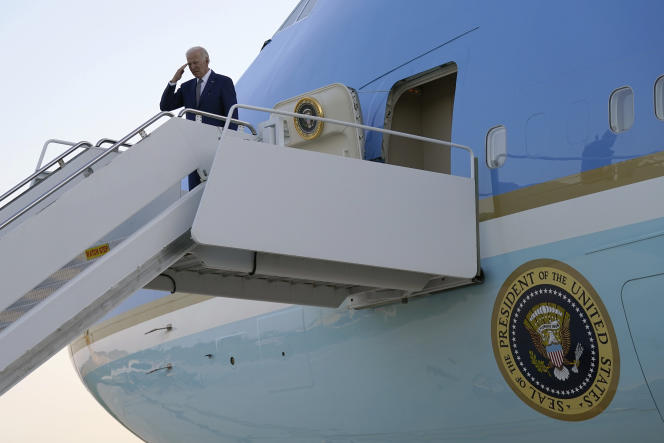Speculation of such a move in June was rife, but according to the New York Times, it is now in effect: US President Joe Biden “has decided to go to Riyadh this month to rebuild relations with the oil kingdom as it seeks to drive down gasoline prices at home and isolate Russia internationally.”
Joe Biden will travel by the end of June to Saudi Arabia where he will meet Crown Prince Mohammed Bin Salman Al Saud (“MBS”), reneging on his promise to treat the kingdom as an “outcast” and not address the controversial leader, US media reported on Thursday (June 2). He will meet with other leaders of Arab countries including Egypt, Jordan, Iraq and the United Arab Emirates, the daily added. The visit would be in addition to a trip already planned for the end of June to Israel, Germany for the G7 summit and Spain for the NATO summit.
The Washington Post also reported on the trip, citing unnamed officials, noting that the “tete-a-tete” with the powerful prince would come after several “low-key” missions to the wealthy Gulf country from his Middle East adviser. , Brett McGurk, and his envoy for energy affairs, Amos Hochstein, who tirelessly plead for an increase in crude oil production in order to bring down inflation.
A beginning of mandate under the sign of the conflict with Riyadh
“The president is looking forward to the opportunity to engage with leaders in the Middle East, but I have nothing to announce today,” White House spokeswoman Karine Jean-Pierre said Thursday. . But if Joe Biden “determines that it is in the interests of the United States to engage with a foreign leader and that such engagement can bring results, then he will,” told Agence France- Presses a senior Biden administration official on condition of anonymity. Without confirming the move, the official said there was “no doubt that important [US] interests are intertwined with those of Saudi Arabia.”
Before his election, Joe Biden ruled that Saudi Arabia should be treated as a “pariah” state because of the assassination of Saudi journalist Jamal Khashoggi. Once in office, the Democrat released the US intelligence report in February 2021 accusing “MBS” of “validating” the murder. Washington then spoke of a “recalibration” of the relationship with this strategic Gulf partner, to turn the page on the close proximity of Donald Trump’s presidency without going as far as a break. Joe Biden’s entourage explained that the president would only speak to King Salman and not to the prince, the country’s de facto leader and privileged interlocutor of his Republican predecessor.
Human rights and Saudi oil
The United States has also shown its intention to put human rights back at the heart of its dialogue with Saudi leaders, and stepped up efforts to end the war in Yemen, where Riyadh militarily supports the government against the Houthi rebels. The decision to move to Saudi Arabia, if confirmed, comes at a time when the international community has snatched the two-month renewal of a fragile truce in Yemen. Joe Biden on Thursday hailed the “courageous leadership” of Saudi leaders in this regard.
It also comes as OPEC, a cartel of oil-exporting countries led by Riyadh, decided on Thursday to boost its production after months of wait-and-see despite soaring prices, thus responding to calls from Westerners. On Thursday, the U.S. official on condition of anonymity downplayed the human rights issue, saying the Biden administration is concerned about the issue in Saudi “as it is with many countries with whom we share interests.” “There are also strategic priorities that are important to address, and our contacts and our diplomatic work has recently intensified,” he added.
But the face-to-face with “MBS” is likely to make the American Congress cringe, even in the Democratic ranks of the president where the sulphurous personality of the crown prince is much criticized. In a rare interview with foreign media published in March by The Atlantic magazine, Mohammed Bin Salman Al Saud hinted that a deterioration in relations with Saudi Arabia could harm Joe Biden. “It’s up to him to think about America’s interests,” he said. Asked if the 79-year-old American president had misunderstood his personality, the young Saudi leader said: “I just don’t care. »


















